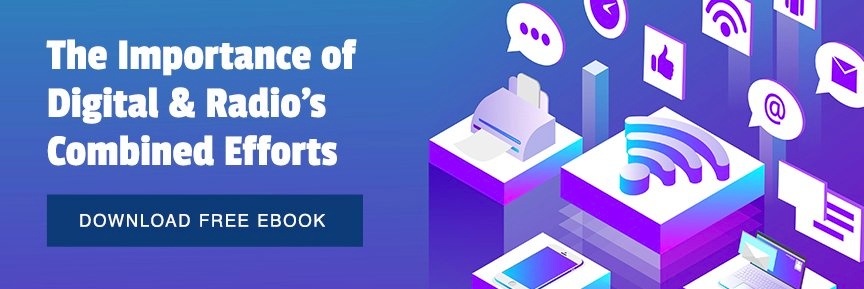Artificial intelligence — or AI for short — is a buzzword in all industries, including advertising.
Used responsibly, AI can help you generate ideas, polish communications, and source background information. But it is a fast-moving space with room for mistakes. The key is knowing when — and how — to use it ethically and legally.
Here’s what every business owner needs to know about AI in their advertising.
What is AI in Advertising?
The most commonly used AI tools in advertising are ChatGPT, Grammarly, and Claude. These large language model (LLM) tools allow users to input a request and receive information back almost instantaneously.
These AI tools (and others) can write an email, summarize a research brief, or spit out 30 brainstorming ideas in seconds. Do you need an exciting new promotional idea to target a consumer group? AI is an excellent resource.
It sounds like a dream come true — but it can also be riddled with errors and false information. AI sites use information found online to generate their responses and fulfill requests, but they don’t check the validity or relevance. That’s still a job for humans.
AI tools may also skim websites and give you copyrighted content, which you may not be legally allowed to use or reproduce.
Federated Media’s Approach to AI
Federated Media has a strict company-wide policy for using artificial intelligence in advertising or marketing materials for our clients. We do not use free AI tools, including ChatGPT, for any published work, including radio commercials, social media posts, and blogs. This keeps our company, employees and clients safe from legal concerns such as copyright infringement.
However, we do allow our team to use paid AI tools that comply with legal requirements, when appropriate, for published work.
Our media professionals, from DJs to account executives and marketing staff, bring irreplaceable human knowledge to their roles. They’re also our clients' best resource for creative ideas for commercials, endorsements, and campaigns. Technology can help us work faster and smarter, but it must be used responsibly and safely.
How We Use AI Responsibly and Legally
Federated Media staff use AI to enhance, not replace, human creativity and expertise.
Here are some great examples for using AI tools:
- Editing copy for radio ads and email campaigns
- Polishing emails to clients.
- Brainstorming names for promotions, contests, and sweepstakes
- Generating ideas for ad themes, sponsorships, and promotions.
- Outlining content proposals and presentations for clients.
- Researching a client’s demographics and competitors.
- Organizing project workflow.
How AI Helps Our Clients
Here are some ways any company can use AI tools for marketing and advertising.
- Polish an email or business proposal.
- Generate content ideas.
- Brainstorm new ad campaign concepts.
- Organize and summarize meeting notes.
- Analyze customer data for trends and insights.
Pro tips:
- Ask AI tools direct questions to refine results, like talking to a coworker.
- Request the tool share its sources to fact-check information, and make sure you fact-check thoroughly.
- Request the AI tool highlight content edits in bold so you can compare your version to its suggestions.
- The more you use an AI tool and the more detailed information you give, the better it adapts to your needs.
- Do not use free tools for anything that is published or public-facing to avoid legal concerns.
Maximize Your Audio Advertising with AI
Ready to see how AI can elevate your audio advertising for maximum impact and return on investment? Our Federated Media marketing professionals continually explore cutting-edge AI technology to maximize our clients’ ad campaigns ethically, legally and effectively. Reach out to us to get started on your next marketing campaign.

